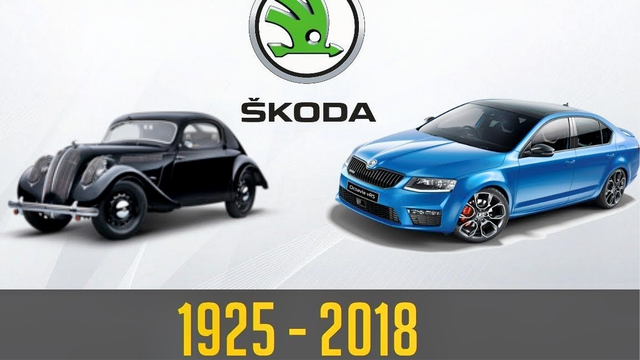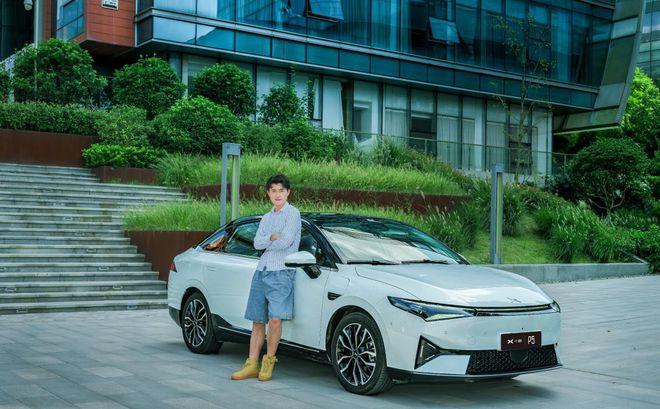The Evolution of Ideal Automobile Brands: A Journey from Dream to Reality
随着社会的发展,人们对汽车的要求也越来越高。理想汽车品牌的诞生,标志着从梦想到现实的飞跃。从最初的概念车到现在的量产车型,理想汽车经历了不断的挑战和创新。在这个过程中,理想汽车不断优化产品性能,提升品牌形象,以满足消费者的多元化需求。面对激烈的市场竞争,理想汽车也在积极拓展市场渠道、加强技术研发,以保持领先地位。理想汽车将继续秉承创新精神,为消费者提供更优质的汽车产品和服务,实现从梦想到现实的美好愿景。
The automobile industry has been a pivotal driver of human progress, and the development of ideal automotive brands has been a cornerstone of this progress. From humble beginnings to global leaders in luxury, the journey of car companies like Mercedes, BMW, and Audi is emblematic of the relentless pursuit of innovation and excellence. In this essay, we will explore the evolution of ideal automobile brands, their impact on society, and their future directions.
The roots of ideal automobile branding can be traced back to the early years of the automobile era. The very first cars were nothing more than simple machines that could move a person from point A to point B. Over time, however, car manufacturers started to take pride in their products, incorporating elements of style, comfort, and technology into their vehicles. This was the beginning of what would eventually become the concept of an "ideal vehicle."
In the early 20th century, the automobile industry began to take off as a major force in the economy. Companies like Ford, General Motors, and Nissan emerged as dominant players, each with their unique approach to making cars. Ford, for example, was known for its assembly line manufacturing methods, which allowed it to produce large quantities of affordable cars at a time when mass production was a relatively new concept. General Motors, meanwhile, focused on styling and engineering, producing cars that were not only functional but also aesthetically pleasing.

During this period, car companies also began to experiment with various technologies, such as electric motors and self-driving features. These innovations helped to push the boundaries of what was possible in terms of transportation and made cars more efficient and convenient for their owners. As a result, many car companies went on to dominate the market for decades, leaving behind brands like Ford and Chrysler that struggled to keep up.
Over the next few decades, the automobile industry continued to evolve and diversify. Car companies started to branch out into other areas, such as aviation and marine engineering. Some also began to focus on luxury and high-end markets, producing cars like Rolls-Royce and Bentley that were designed for those who valued style, comfort, and exclusivity above all else.
Today, the automobile industry is one of the most complex and competitive industries in the world, with dozens of major players vying for market share and attention. Many companies have embraced sustainability and environmental responsibility as key pillars of their business models, investing heavily in electric vehicles and alternative energy sources. Others have continued to refine their engineering capabilities, developing cutting-edge technologies that improve fuel efficiency and safety while reducing noise pollution.
Despite these changes, some core values remain constant across the industry. At the heart of every ideal automotive brand is a commitment to innovation, quality, and customer satisfaction. These brands are constantly pushing the boundaries of what is possible in terms of design, performance, and technology, striving to create vehicles that are not only reliable but also luxurious and enjoyable to use.

Looking to the future, it is clear that the automobile industry will continue to face challenges and opportunities alike. As concerns about climate change grow, there will be increased pressure on manufacturers to develop more sustainable and eco-friendly options. Additionally, consumers are becoming more conscious of their carbon footprint and will likely prioritize vehicles that are both environmentally friendly and economically efficient.
To meet these demands, car companies will need to invest in research and development and adopt new technologies, such as battery-powered engines or hydrogen fuel cells. They will also need to adapt their supply chains to reduce waste and increase transparency in their operations. Finally, they will need to continue to innovate and stay ahead of the curve by offering new models and features that meet the evolving needs of their customers.
In conclusion, the ideal automobile brand represents not just a product but a symbol of human achievement and ambition. It stands as a testament to the power of human ingenuity and creativity, and its continued evolution reflects the dynamic nature of our modern society. While we may never achieve complete mastery of the art of designing perfect vehicles, we can always strive towards creating vehicles that are both beautiful, functional, and sustainable, reflecting the best values of our culture and society.

随着汽车市场的日益繁荣和消费者对高品质汽车的追求,新兴汽车品牌不断涌现,在这个充满竞争的时代,理想汽车品牌以其独特的英文名,承载着探索、创新和追求未来的使命,为全球消费者提供卓越的驾驶体验,本文将围绕理想汽车品牌的英文名展开,探讨其品牌理念、发展历程、技术创新以及对未来的展望。
品牌理念
理想汽车品牌的英文名体现了品牌追求卓越、敢于探索的精神,这个品牌名字寓意着汽车的高品质、智能化以及环保理念,自成立以来,理想汽车始终坚持以人为本,追求创新,致力于为消费者提供具有高性价比、智能化、环保的汽车产品,品牌的核心理念是打造高品质、智能化的驾驶体验,让每一位消费者都能享受到驾驶的乐趣。
发展历程
理想汽车品牌的发展历程可谓是一路风雨兼程,品牌自创立以来,始终紧跟全球汽车市场的发展趋势,抓住机遇,不断创新,在短短几年时间里,理想汽车已经取得了令人瞩目的成绩,品牌通过不断研发新技术、新产品,提升产品品质,满足消费者的需求,理想汽车还积极拓展市场,加速全球化布局,为全球消费者提供优质的汽车产品和服务。
技术创新
理想汽车品牌在技术方面的创新是其持续发展的核心竞争力,品牌致力于研发新技术,如电动汽车、智能汽车等,为消费者提供更加便捷、环保的驾驶体验,在电动汽车领域,理想汽车不断提高电池性能,优化充电设施,为消费者提供更加便捷的充电体验,在智能汽车领域,理想汽车通过引入人工智能、大数据等技术,提升汽车的智能化水平,为消费者提供更加智能、安全的驾驶体验。

产品特点
理想汽车品牌的产品以其高品质、智能化和环保特点受到消费者的青睐,品牌的产品线涵盖了轿车、SUV等车型,以满足不同消费者的需求,理想汽车的产品采用先进的生产工艺和高质量的材料,确保汽车的品质和可靠性,品牌的产品还配备了先进的科技设施,如智能语音助手、自动驾驶等,提升驾驶的便捷性和安全性,理想汽车还注重环保,致力于研发低碳、环保的汽车产品,为保护环境做出贡献。
未来展望
面对未来,理想汽车品牌将继续坚持探索、创新的品牌精神,不断提升产品品质和技术水平,品牌将加大对新能源汽车、智能汽车等领域的研发投入,加速新能源汽车的布局和推广,理想汽车还将拓展市场,加速全球化进程,为全球消费者提供更加优质的汽车产品和服务,品牌还将关注消费者的需求变化,不断推陈出新,满足消费者对高品质汽车的追求。
理想汽车品牌以其独特的英文名和品牌理念,不断探索、创新,为全球消费者提供卓越的驾驶体验,品牌的发展历程、技术创新、产品特点以及对未来的展望都展示了其追求卓越的精神和坚定的信念,理想汽车品牌将继续坚持探索、创新的品牌精神,为消费者提供更加优质、智能化、环保的汽车产品和服务。
与本文知识相关的文章:



